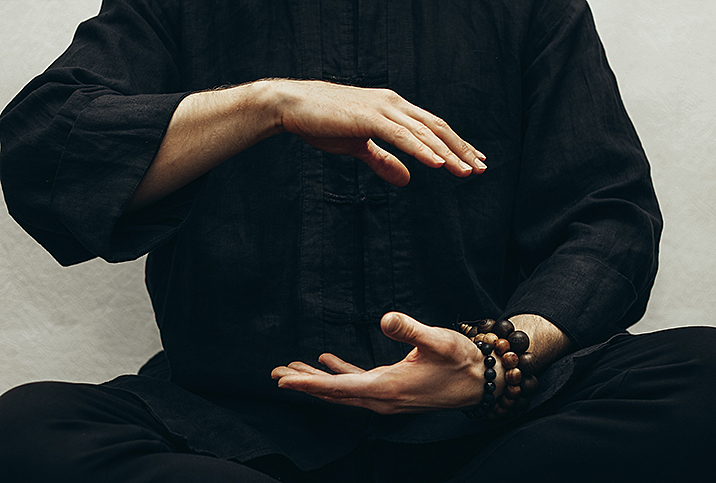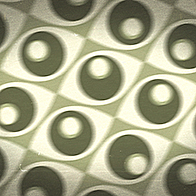Energy Exercises for Mental Health

There's a big difference between coping with trauma and actively engaging with the trauma recovery process. Coping methods develop almost instinctively, and as such, can be healthy or unhealthy, or a combination of both. For example, we can cope with trauma through exercise, like running, or we can find comfort in things like smoking or drug use.
Coping strategies can temporarily help relieve trauma symptoms, but they don't necessarily assist in the recovery process, and they don't have to be unhealthy practices to do a disservice to your healing. A person consumed by a rigorous exercise routine may be improving their cardio or muscular health while their mental health issues go unresolved and become potentially exaggerated over time.
We have to be very careful about treating objectively healthy activities as beneficial to the trauma recovery process, especially when those practices are adopted by trauma patients without the guidance of a specialist to help them.
Careful with triggers
Deborah Fox, MSW, is a certified sex therapist in Washington, D.C., with 30 years of experience working with individuals, couples and groups. She said that when it comes to addressing trauma by way of physical activity, we have to be aware of our own triggers and how being triggered affects long-term recovery.
"Any physical activity can actually trigger trauma," Fox said. "So, certain practices, even deep breathing, can be healing, but if somebody is not really working around their trauma with a therapist who is skilled in trauma- and body-based interventions, trauma can be triggered and it can basically retraumatize them as opposed to being helpful."
This is true of physical activities, like tai chi, but also with other, more passive activities that are commonly regarded as cathartic, she said. Fox includes acupuncture and massage as examples of healing practices known to be capable of triggering a trauma response in the body, with psychological and emotional consequences.
When these triggers occur—especially if the occurrence is unexpected—dealing with the triggers and the realities of internalized emotional responses requires the assistance of a trauma-informed care provider.
Can exercise heal trauma?
Healing exercises, such as qigong and tai chi, can have a positive impact on a person's trauma recovery process as well as their coping techniques.
With roots in ancient Chinese medicine, qigong can be traced back more than 4,000 years, and is a system using posture and movement coordinated for spirituality and health. Tai chi—derived from t'ai chi ch'üan or tàijí quán—is based on qigong and other ancient martial arts, and was first referenced in the 17th century. According to a 2020 study published in Frontiers in Medicine, about 2.9 million people in the U.S. practiced either tai chi, qigong or both in 2012.
'The more different regions of the brain are integrated, the more flexible and open a response is possible, which helps combat against the reactivity that can happen when a person is triggered by trauma.'
"Qigong and tai chi can help in the trauma recovery process because they help integrate regions of the brain, like the default mode network, with other areas, like the temporal-parietal junction," said Heidi Crockett, a certified sex therapist and educator with a specialization in arousal of the nervous system through sex and stress. "The more different regions of the brain are integrated, the more flexible and open a response is possible, which helps combat against the reactivity that can happen when a person is triggered by trauma."
She added that any exercise that helps improve awareness of sensations in the body—a process called interoception—can encourage the integration of various parts of the brain and make a person more receptive to their own triggers in a way that could help them form better relationships with their trauma. Crockett made note of qigong, especially, as an exercise capable of stimulating an improved interoception awareness in people.
Treating trauma versus coping with stress
Trauma and stress are conflated with one another because the two are so closely linked within the context of a post-traumatic stress disorder (PTSD) diagnosis. Studies have shown exercise like tai chi can help with PTSD and chronic stress, but different types of trauma can leave impressions on the mind and body that, years later, may be difficult to process.
Both qigong and tai chi involve an awareness of natural movement techniques that are intended to be repeated and utilized to form a deeper connection to your chi, or unique personal energy. Basic movements that involve energy work tend to include light shaking, stretching and breathing techniques. The simplest, seemingly automatic physical gestures can have healing benefits.
It's common for people to shake when they've recently experienced a physically traumatic event, such as a car accident or a bike crash. Fox said the traditional first-responder approach to this experience of blanketing the shaking person has been shown to exacerbate the traumatic experience for some people.
"That shaking is a way that we naturally have to get rid of the trauma of what just happened to us," she said.
It may be hard to imagine how something like a blanket or a light physical touch could be responsible for inducing or triggering trauma, but one of the distinguishing characteristics of trauma and other mental health conditions is the unpredictable way symptoms manifest. Trauma manifests differently in everybody, and personalized care is the only way to address each case.
Exploring body awareness and trauma recovery
Talk therapy is probably the best place to start for most people hoping to improve their relationship with trauma. Working with a trauma-informed professional counselor or therapist can help clarify what sort of behaviors and social interactions have the potential to trigger your unique reaction.
If you've found in the past that a bit of light physical exercise helps you think more clearly or helps manage your mood, then it's possible exercises like those included in qigong or tai chi will be fruitful to your personal ability to cope with things affecting your mood. If you think trauma might play a significant role in how you respond to social settings or physical closeness, you might want to examine that with a counselor before attending a new class or other social interaction involving physicality or possible closeness.
Mental health management isn't always easy, but if you're thinking about exercises and activities you can pursue to make improvements, you might already be on the right track. It's just important to be aware of the fact that we all still have a lot to learn about how trauma is stored and released in the body, and how that plays out emotionally.




















